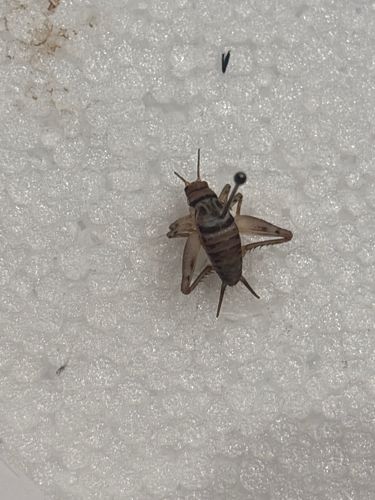Cricket
Scientific Name: Gryllidae (family)
Order & Family: Orthoptera: Gryllidae
Size: Typically 0.5 to 2 inches (1.3 to 5 cm), but can vary greatly by species.

Natural Habitat
Found in various habitats, including grasslands, forests, caves, and sometimes human dwellings. They prefer damp, dark places.
Diet & Feeding
Omnivorous; they eat a variety of plant matter, seeds, fungi, decaying organic material, small insects, and even their own dead.
Behavior Patterns
Nocturnal, known for their distinctive chirping sounds produced by males rubbing their wings together (stridulation). They are generally solitary but can be found in groups, especially in areas with abundant food and shelter. Many species are good jumpers.
Risks & Benefits
Generally harmless to humans, though some species can become household pests by feeding on fabrics or food. They are an important part of the food chain, serving as food for birds, lizards, and other predators. They are also sometimes raised as pet food and for human consumption in some cultures.
Identified on: 9/19/2025